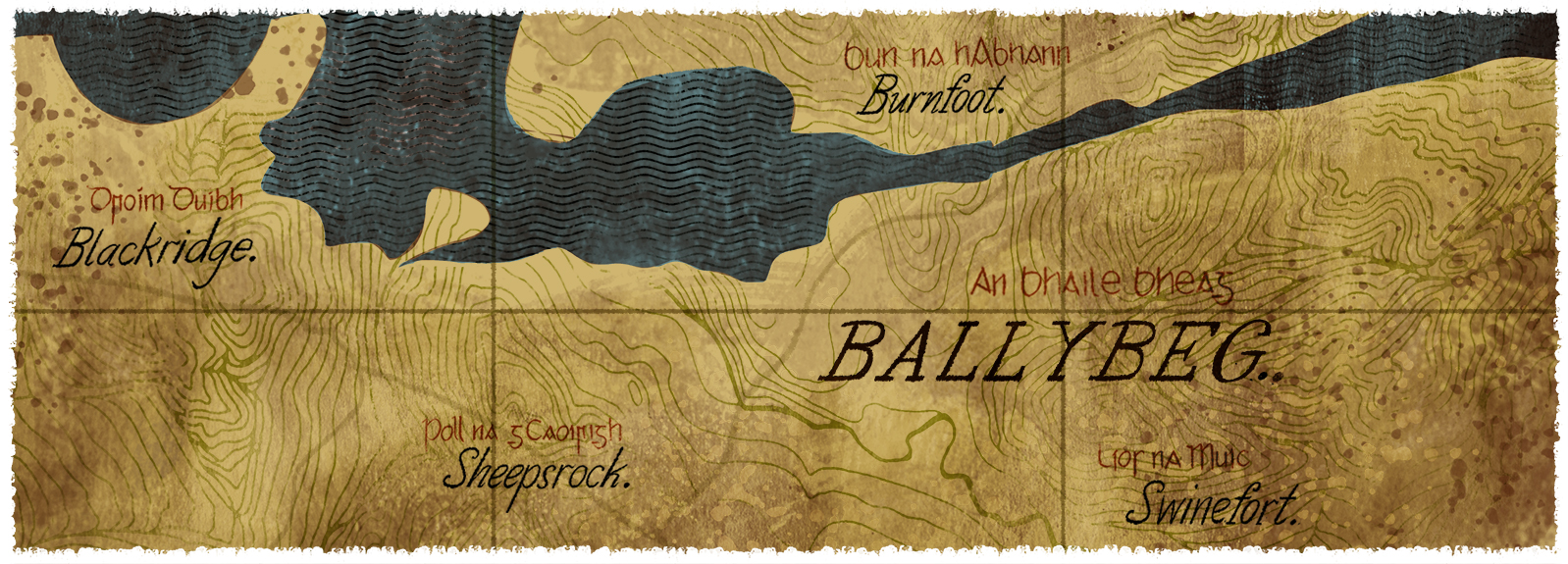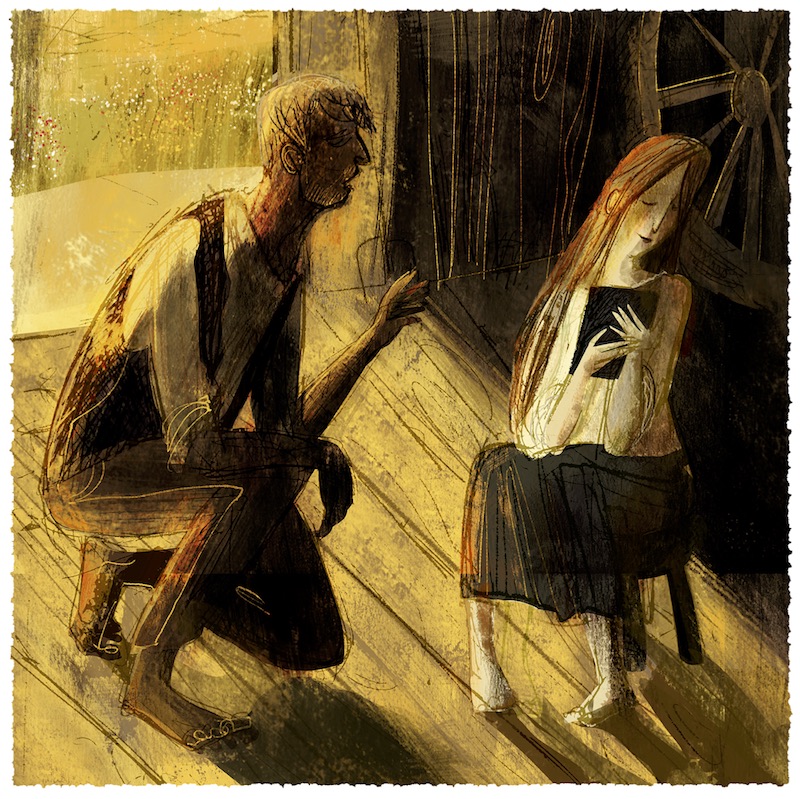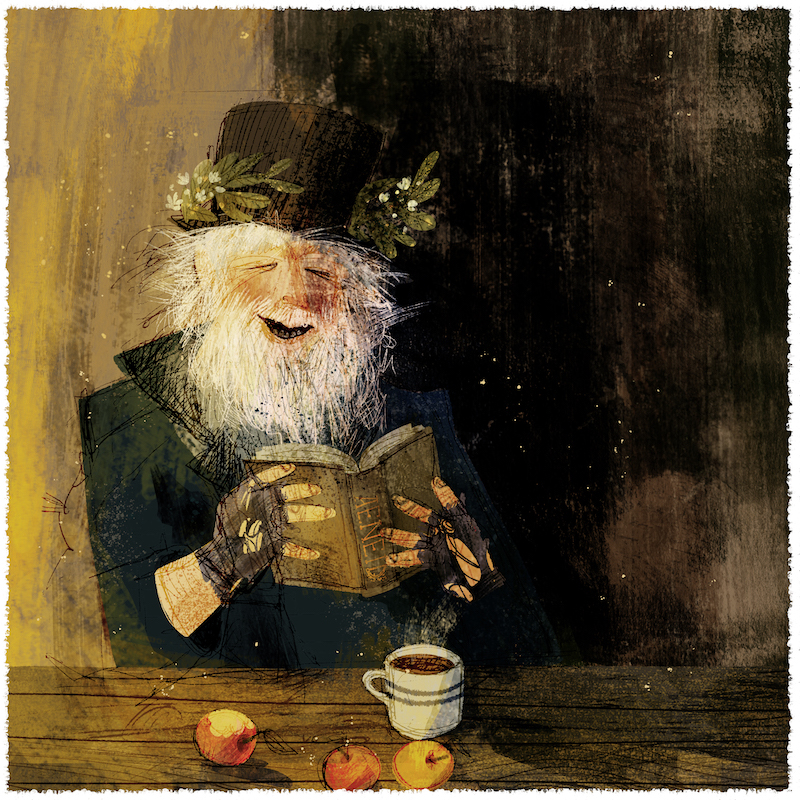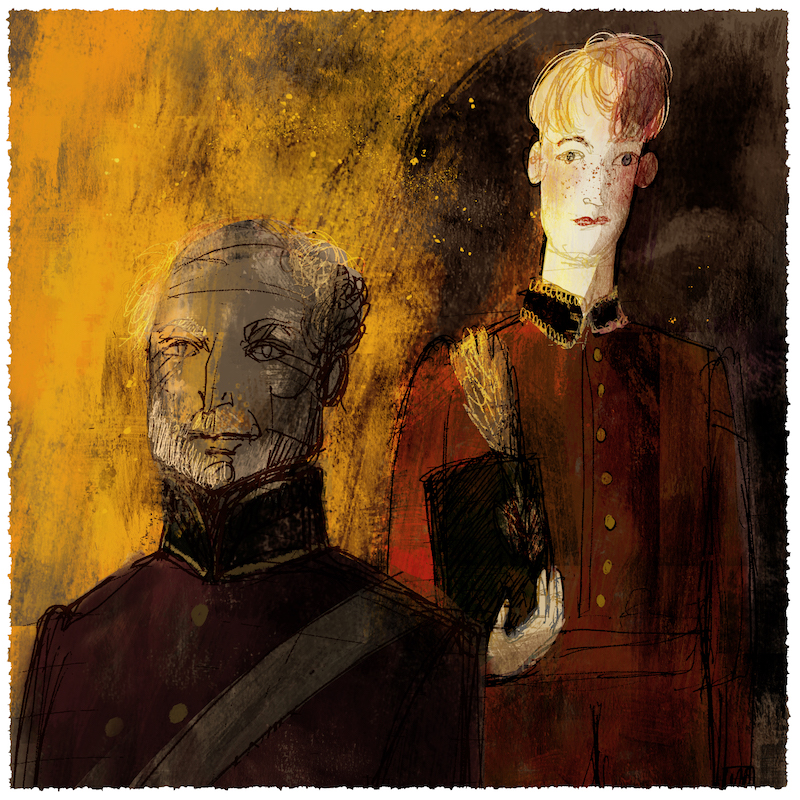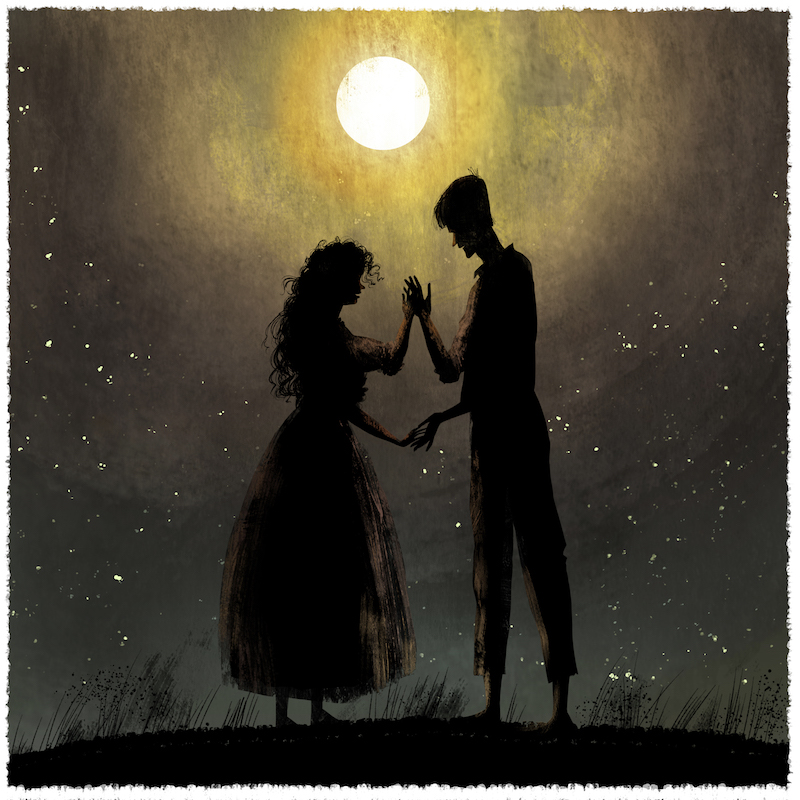The Plays: 'Translations' (1980)
Premiered
- 23 September 1980 at the Guildhall, Derry.
Published in
- Brian Friel - Collected Plays: Volume Two, The Gallery Press / Faber & Faber (2016).
Illustrations by
- Dermot Flynn, commissioned by the Friel Reimagined Project, 2022.
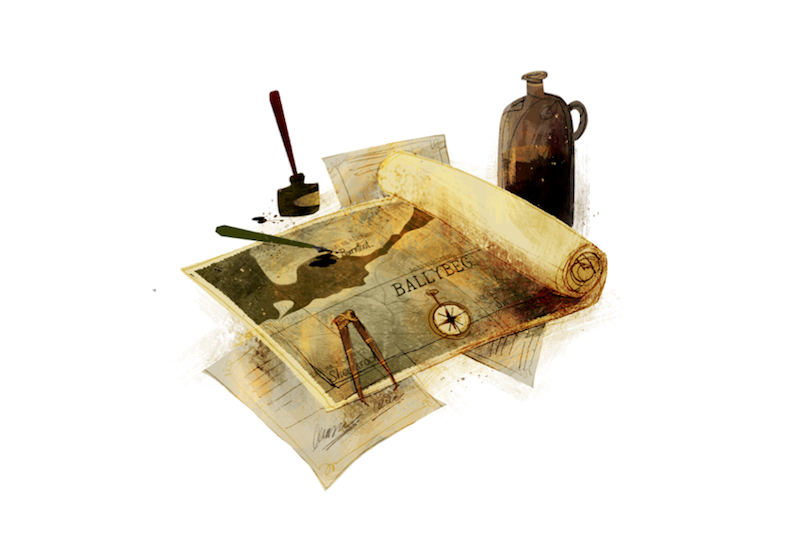
The year is 1833, and in the townland of Baile Beag (Ballybeg), County Donegal, a small group of young people attend a hedge school to learn reading, writing and arithmetic – and a liberal dose of Latin and Greek – from schoolmaster Hugh O’Donnell. The modest surroundings of the school (‘in a disused barn or hay shed or byre’) provide the setting for Brian Friel’s masterpiece, an extraordinary exploration of language, power, history and identity.
Friel found a rich dramatic seam in a moment of historical transformation. Thirty years after the Act of Union and still a decade before the Great Famine, cartographers and orthographers were dispatched with the Royal Fusiliers to travel the breadth of Ireland, charged with making detailed maps and anglicising placenames. The initial meetings between the touring officers and the people of Baile Beag are cordial, and the younger Englishman, Lieutenant Yolland, is captivated by the place to which he has been posted. Some of the locals are suspicious: Hugh’s son Manus, for example, shows little but scorn for Yolland and his senior, the cartographer Captain Lancey. But his brother Owen sees an opportunity to guide the renaming exercise in a more meaningful direction. Meanwhile, Maire and Yolland unexpectedly find themselves drawn to one another, and in the play’s centrepiece scene, Friel constructs a faltering, beautiful conversation across the language barrier.
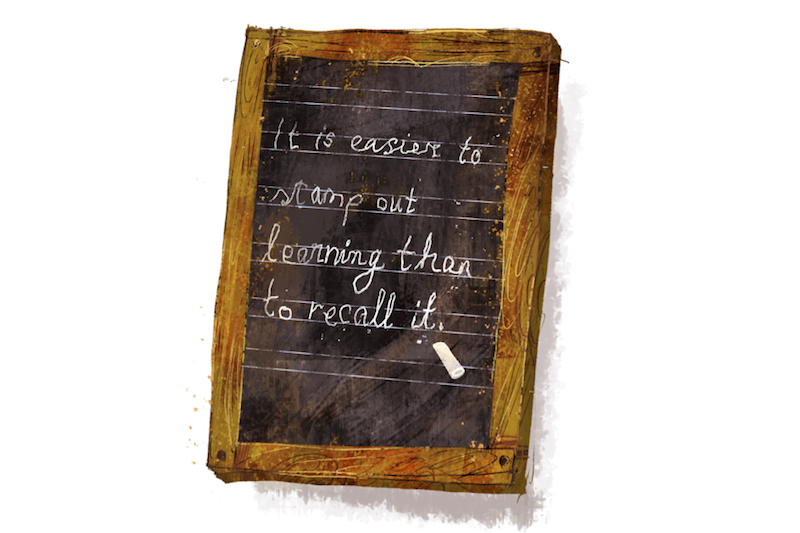
As the placenames on the map take on strange new forms and sounds, the very ground seems to be shifting under the feet of the people of Baile Beag. The characters hear rumours that the new system of National Schools will teach all subjects through English, marking another profound upheaval. Centuries of culture, and an old way of life, are being transformed.
The task of anglicising and standardising Irish placenames may seem to be all in the name of progress, but the sappers' work effaces the subtle, sometimes centuries-old meanings and associations of the Irish words and their connection with the landscape. For Hugh, to understand words deeply – their meaning and etymology – is of primary importance, and he repeatedly quizzes his students on Latin and Greek conjugations and definitions. Yet even he acknowledges that words are 'not immortal'. The people are neither ignorant nor dogmatic. Deciding on the naming of Tobair Bhri, Yolland seeks to maintain the memory of a local story, while Owen wonders whether it's worth 'keeping piety with a man long dead'. Maire is forthright and practical on the subject: ‘I want to be able to speak English because I’m going to America as soon as the harvest’s all saved’. She knows English would provide the best means of reaching better circumstances if she must leave her homeland of limited opportunity.
Layers of narrative are woven together. The budding relationship between Maire and Yolland takes centre stage, but unbeknownst to them, misunderstandings lead to a volatile atmosphere taking hold.
The action repeatedly descends on the hedge school. We see the first warm welcome extended to the smartly dressed officers, and the later dark news of someone going missing in mysterious circumstances. The initial goodwill quickly evaporates, and a tense atmosphere pervades the closing scenes; Friel makes clear the overawing power of the British military in Lancey’s unambiguous threat to evict the residents and level their homes. Throughout, the hedge school is a place of learning and socialising, exploring the world and one’s place in it through language, from the most basic literacy skills to the high literary heritage of the Greek and Latin classics. The play opens with Sarah, who has struggled with a speech defect all her life, finally succeeding in saying her name aloud, a moment of triumph and joy. It closes on the learned schoolmaster, Hugh, misremembering the sequence of Virgil's Aeneid. Words, for the first time, fail him.
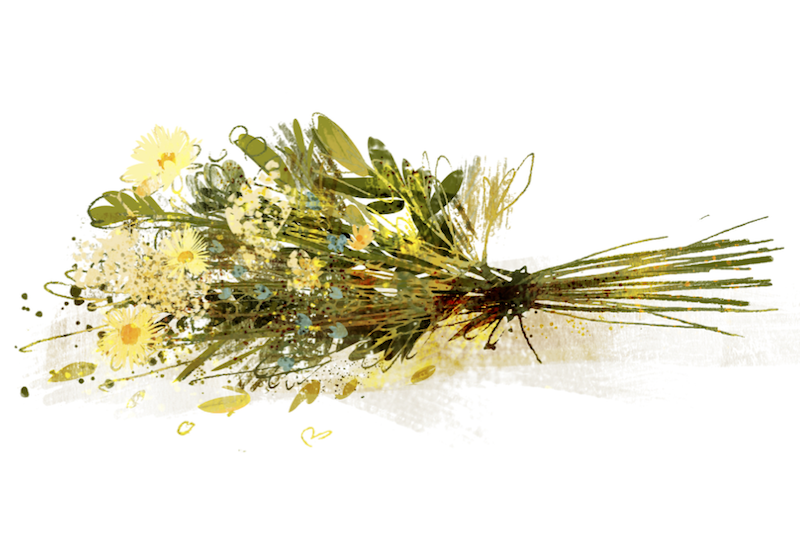
Owen, engrossed in the task of translating the placenames for Yolland.
Poll na gCaorach, Baile Beag, Ceann Balor, Lios Maol, Machaire Buidhe, Baile na nGall, Carraig na Rí, Mullach Dearg...
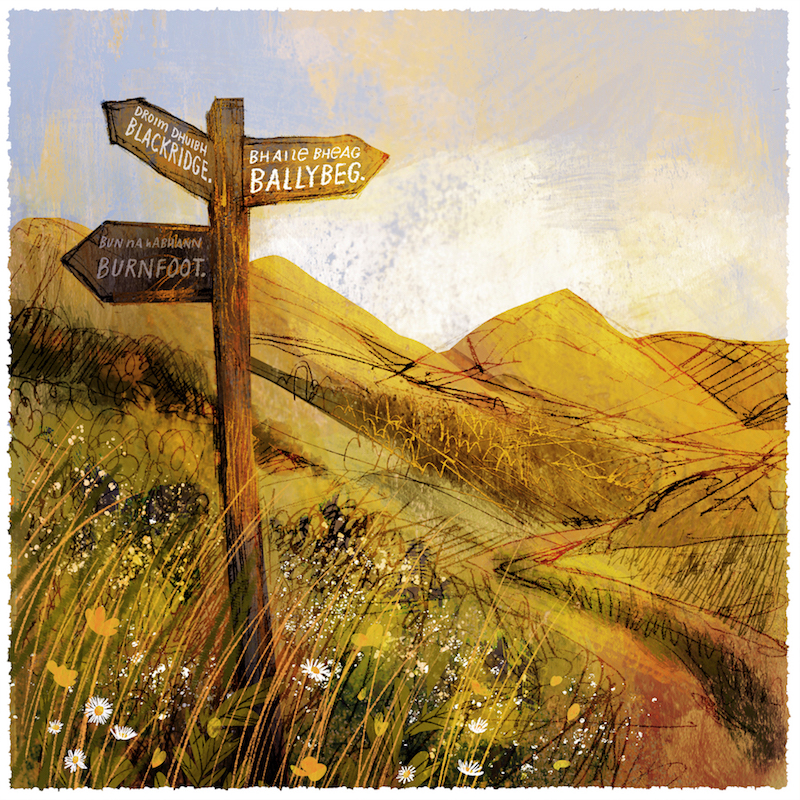
More on Translations
- Garden, Alison (2022). 'Why a play about Ireland’s native language finds new resonance in Anglo-Irish relations today,' The Conversation, 10 June 2022.
- McLaughlin, Catriona (2022). 'Lost in Translations - inside the Friel revival at the Abbey', RTE Culture, 27 June 2022.
About the Illustrator
Dermot Flynn is an illustrator, animation designer and educator based in London and Dublin. Some of his clients include Pentagram, Paramount, The New Yorker, The Guardian and Little Brown.
-
About the Friel Reimagined Illustration Programme
The Friel Reimagined Project is delighted to work with five talented Irish and Northern Irish illustrators to help introduce Friel's work. Each of them has each chosen one of Friel's plays to interpret in their own illustration style. Their work will appear on the Friel Reimagined website throughout 2022.
Illustrator Play Fuchsia MacAree Philadelphia, Here I Come! Lydia Hughes The Freedom of the City Ashwin Chacko Faith Healer Dermot Flynn Translations Ashling Lindsay Dancing at Lughnasa

